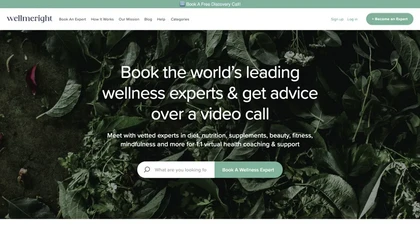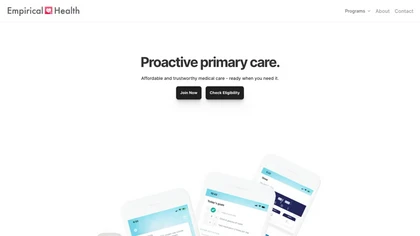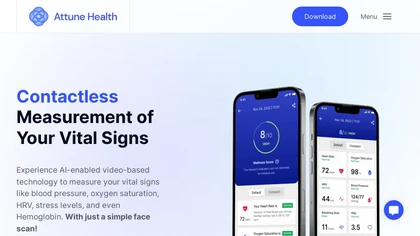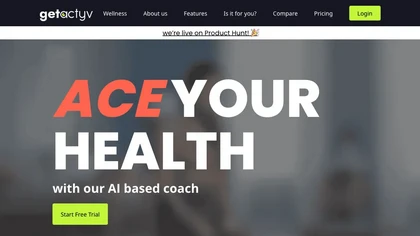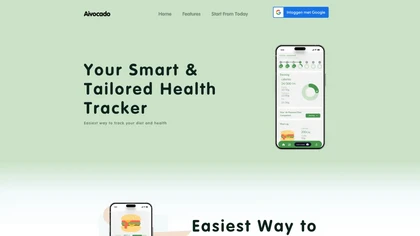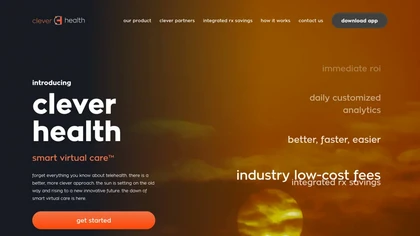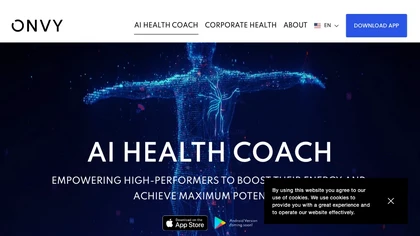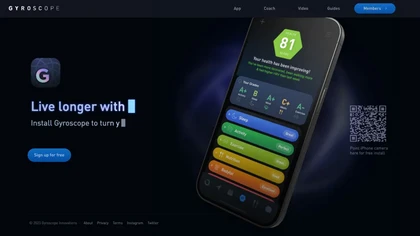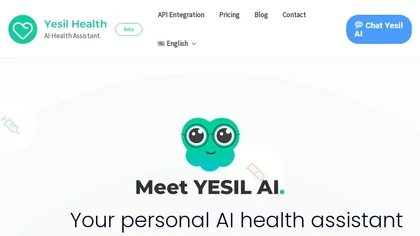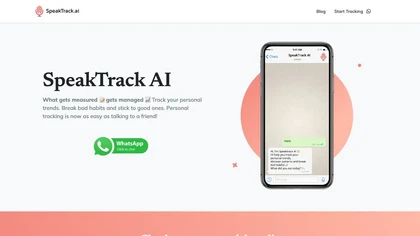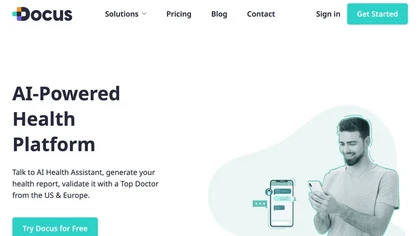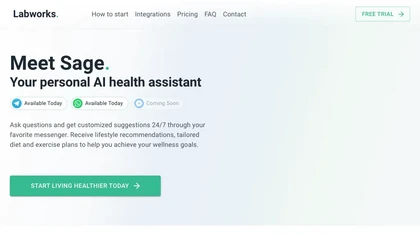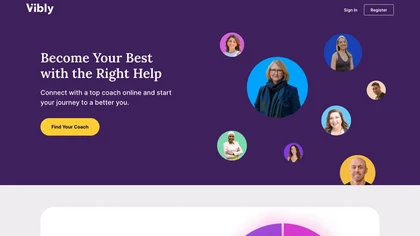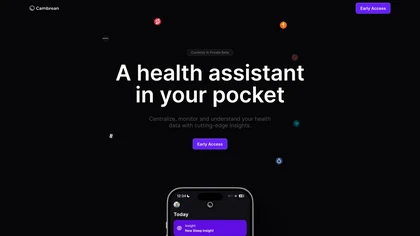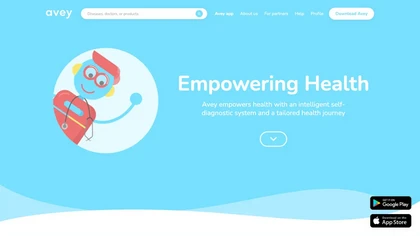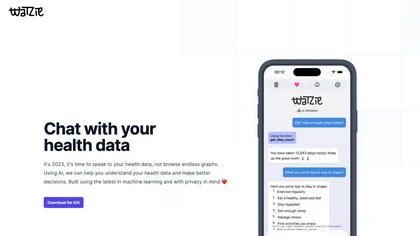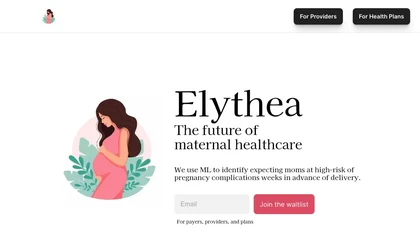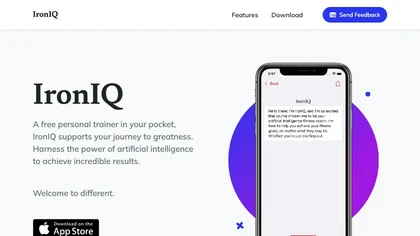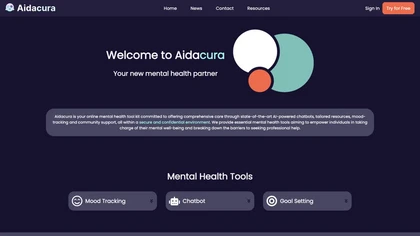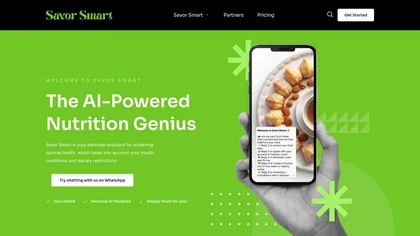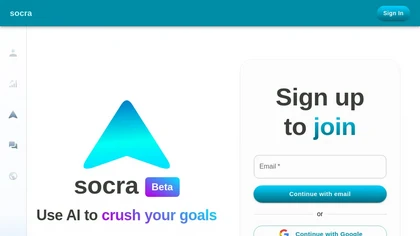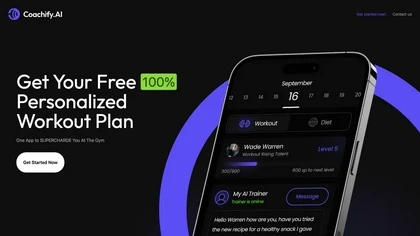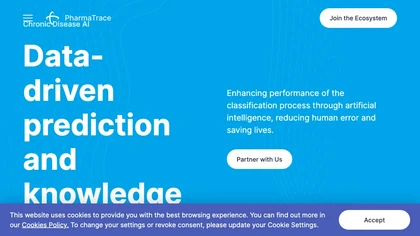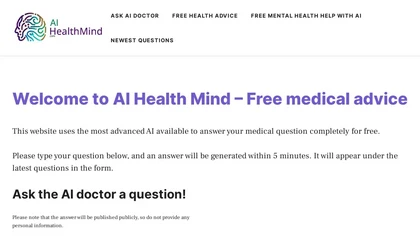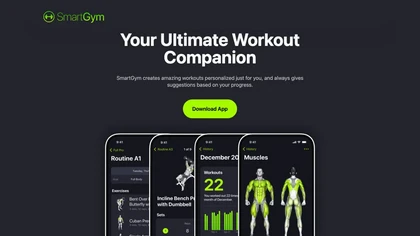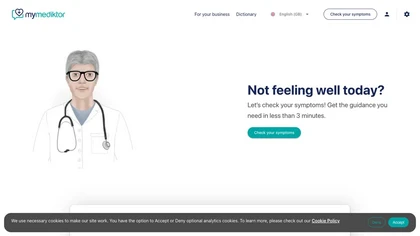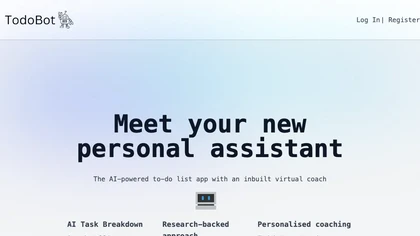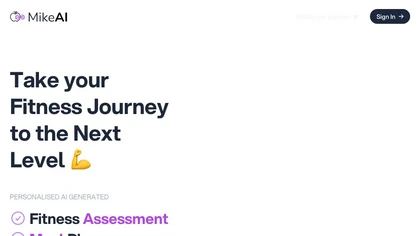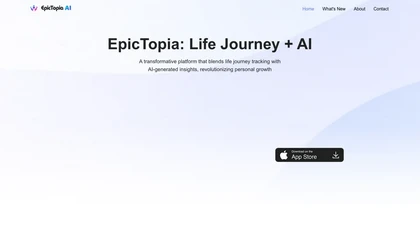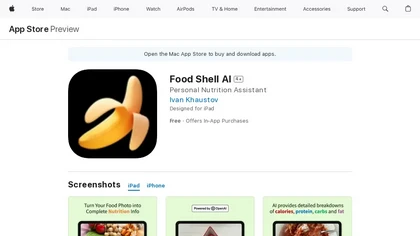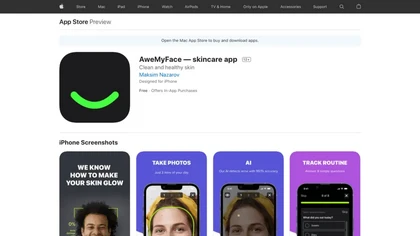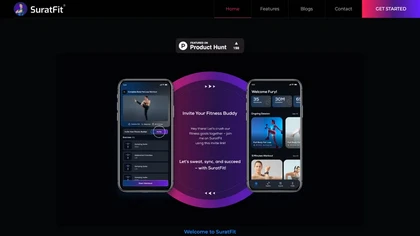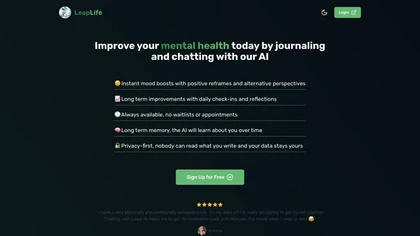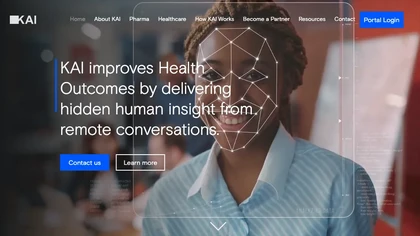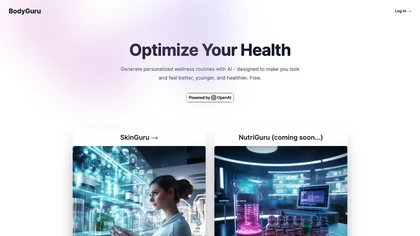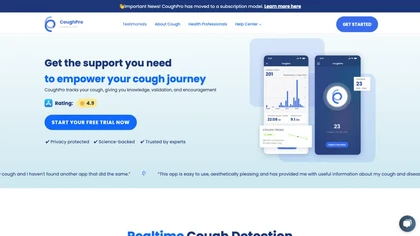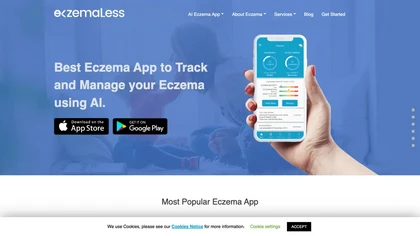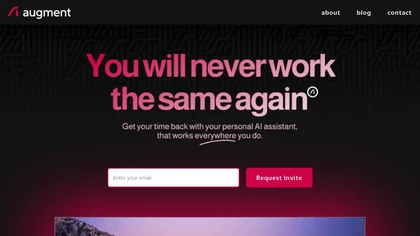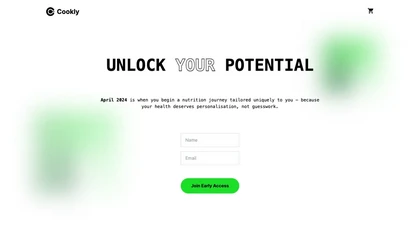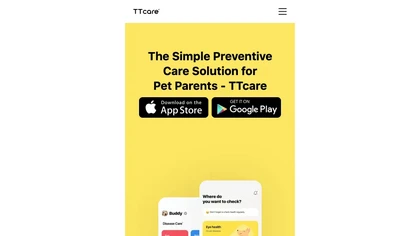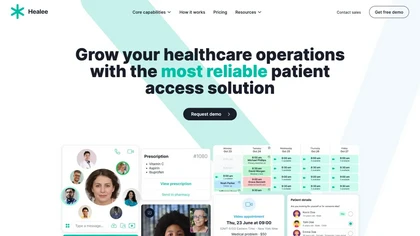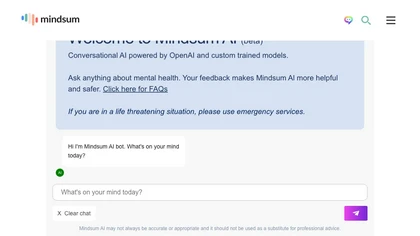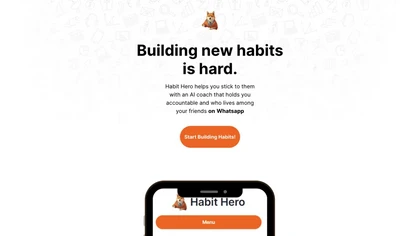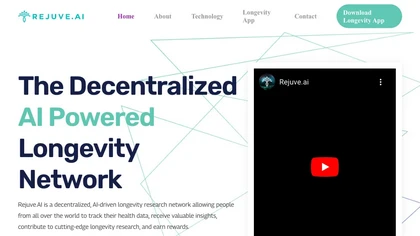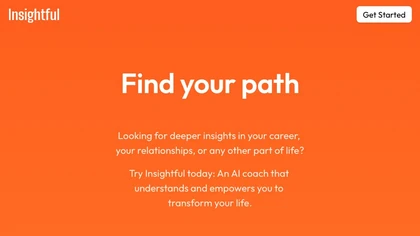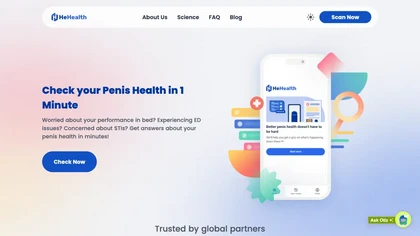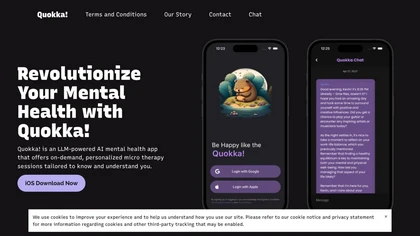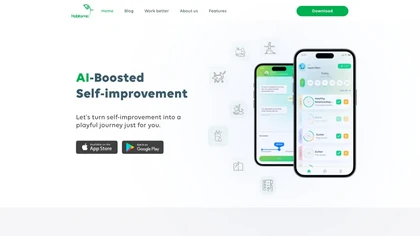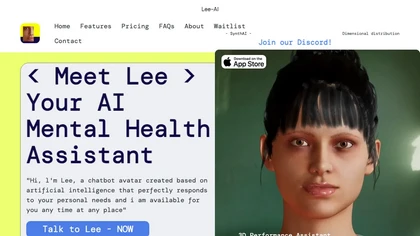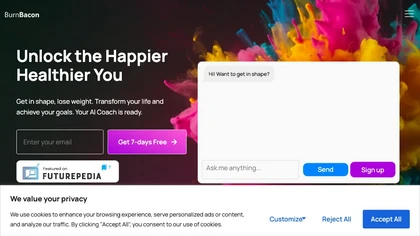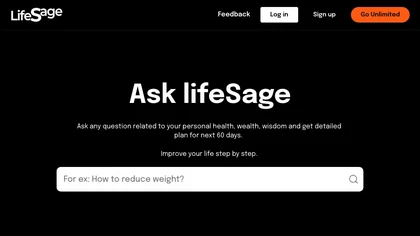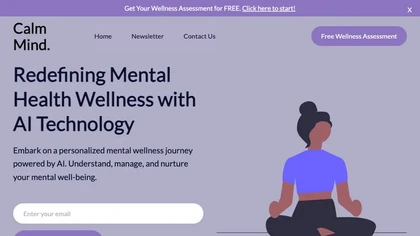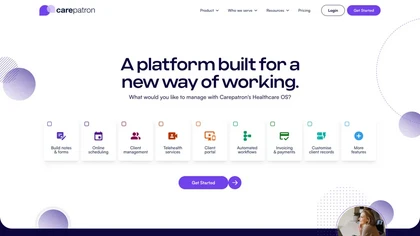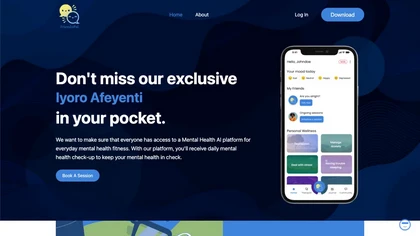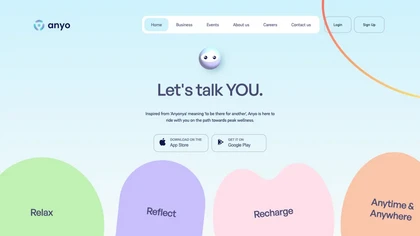AI use cases for Health tracking
Generative AI can be applied in various applications for health tracking. Here are some examples to explore below for inspiration with AI tools to get you started with using AI in health tracking.
🛠️ 70 AI tools for Health tracking
Explore a dynamic list of some of the most popular tools to get you started with various AI use cases and applications for Health tracking to streamline your workflows and productivity today.
Well Me Right features
- AI matching and Health Coach capabilities
- Personalized coaching
- Dietary tracking, nutritional guidance
- Guided meditation sessions
- Adaptive health partner
Empirical Health features
- Proactive primary care
- Integration of consumer wearables for health monitoring
- Consultation with doctors via mobile app
- Personalized care plans
- Compatibility with major insurance providers
Attune health features
- Vital sign measurement
- Contactless experience
- Real-time measurements
- Wellness tracking
- Corporate wellness
Shapemate features
- Workout tracking
- Calorie tracking
- Personalized recipe generation
- Personalized workout plan generation
- Nutritional information chat interface
Getactyv features
- Ai-based coach
- Personalized programs
- Motion sensor-enabled workouts
- Flexibility
- Strength
- Weight loss
AIvocado features
- Food image recognition
- Nutrition analysis
- Personalized tracking
- AI diet assistant
- Long-term diet tracking
cleverhealth.ai features
- AI technology utilization
- Quick consultations with average visit time
- AI decision support for accurate diagnoses
- AI-powered chatbot for mental health support
- Cost savings on medications
🔥
Create your account, save tools & get personal recommendations
Receive a weekly digest of our handpicked top tools.
Unsubscribe anytime
ONVY features
- Track daily activities
- Receive personalized guidance on sleep, fitness, and stress management
- Offers a monthly health report
- Connects to 300+ fitness trackers
- Ensures data privacy through gdpr compliance
Gyroscope features
- Personalized guidance
- Video guides
- Tracking tools
- Insights through reports
- Custom workouts
Yesil Health features
- Symptom analysis
- Lab result analysis
- Customized lifestyle advice
- Personalized diet plan
- Exercise plan
Speaktrackai features
- Voice message input for tracking various aspects of daily life
- Privacy focus with no data selling or targeted ads usage
- No app installation or sign-up required
- Actionable insights for informed decision-making
- Convenience and intelligence through AI-powered tracking and analysis
Docus.ai features
- Generating health reports
- Seeking information related to health concerns
- Facilitating communication with top doctors
- Providing personalized responses based on health details
- Recognized for its features by reputable sources
Sage features
- Personalized health advice
- Meal planning
- Customized exercise recommendations
- Tracking daily activities
- Monitoring progress
PoseTracker API features
- Real-time human body movement analysis
- Ultra-stable mobile and web application development
- On-edge real-time pose detection technology
- Pre-trained fitness exercises
- Exercise repetitions counting
Vibly features
- AI matching algorithm
- Personalized coach recommendations
- Tailored coaching experience
- Evidence-based techniques
- Convenient online coaching sessions
Cambrean (Beta) features
- Centralized platform for health data monitoring and analysis
- Focus on sleep, nutrition, workouts, and vitals
- Continuous health analysis capabilities
- Data synchronization for powerful insights
- Analyzing and contextualizing health metrics for informed decisions
Avey features
- Self-diagnostic system
- Tailored health journey
- Accurate diagnosis
- Appointment booking with doctors
- Medical condition coverage
Watzie features
- Machine learning technology
- Easy-to-understand health information presentation
- Graphs and statistics visualization
- Privacy-focused platform
- Personalized insights
Elythea features
- Integration with ehr systems
- Personalized insights
- Early intervention
IronIQ features
- Track progress
- Share workouts
- Celebrate achievements
FitComrade features
- Track workouts
- Track water intake
- Set fitness plans
- Access to 1300+ exercises
- AI-powered guidance
Aidacura features
- AI-powered chatbots
- Tailored resources
- Mood-tracking
- Community support
- Natural language processing
Clearmind features
- To-Do lists
- Mood cards
- Meditation scripts
- Chat
Savor Smart features
- Personalized meal plans
- Consideration of health conditions and dietary restrictions
- Chatbot integration on WhatsApp
- Blood sugar control and weight loss support
- Contextual reminders throughout the day
Pebblely features
- Natural language processing
- Text classification
- Information retrieval
- Summarization
- Sentiment analysis
VPT.FIT features
- Custom workout solutions
- Tailored fitness plans
- Personalized workouts
- Expert coaches
- Cutting-edge technology
Socra features
- Goal setting
- Assistance
- Achievement
Coachify.AI features
- Personalized workout plans
- Animated workout videos
- Progress tracking
- Strength reports
- Personalized training experiences
PharmaTrace features
- Chronic disease management
- Early disease detection
- Economic costs reduction
- Budget forecasting
- Decision support
AI Health Mind features
- Generate medical advice
- Answer medical questions
- Powered by cutting-edge technology
- Use of reliable medical databases
- Easy to use
SmartGym features
- Personalized workout suggestions based on progress
- Artificial intelligence smart trainer for customized workouts
- Real-time recommendations and adjustments
- Tracking capabilities for various workout metrics
- 690 exercises with animation instructions and customization options
Mediktor features
- AI-based virtual medical assistant named Oskar
- Quick symptom checking within less than 3 minutes
- Personalized pre-diagnoses and recommendations
- Developed by doctors and AI experts
- Clinically validated tool with emphasis on ethical and security standards
Todobot
4.8Todobot features
- Virtual coach
- Ai task breakdown
- Personalized coaching system
AI Meal Planner features
- Generates personalized meal and workout plans
- Includes fitness chatbot support
- Provides recipes
- Tailored to user's goals and needs
- Pricing options available
EpicTopia AI features
- Life journey tracking
- AI-generated insights
- Tailored action plans
- Personalized chronicle on a timeline
- Detailed guidance
Food Shell AI features
- nutrition information analysis based meal photos
- calories tracking
- personalized recommendations
- photo food logging
- OpenAI GPT-vision technology
AweMyFace features
- Skincare recommendations
- Skin analysis
- Product recommendations
- Skin concerns identification
- Skin improvement tracking
SuratFit features
- Personalized workout plans
- Instructional videos and 3-D animations
- Customizable workouts
- Membership plans
- Loyalty reward management system
Workout Tools features
- Personalized workout sessions
- Tailored workout plans
- Adapts to available equipment
- Extensive database of exercises
- Customized training experience
LeapLife features
- AI chat function
- Personalized chatting AI
- Daily journaling
- AI therapists chat
- End-to-end encryption
Kai features
- Conversation
- Remote
- Delivering
- Hidden
- Human
- Insight
- Health
- Outcomes
BodyGuru features
- Personalized wellness routines generation
- Tailored recommendations
- Free platform
- Upcoming features integration
- Developed by JBBAE
CoughPro features
- Track and analyze cough patterns
- Real-time cough detection through algorithm
- Accurate recording of coughs
- Identification of patterns and monitoring health
- Detection of different types of cough sounds
AI Eczema App features
- Track and monitor eczema triggers through images
- Manage personalized treatment plans
- Analyze correlations between triggers and severity
- Provide visual graphs to track eczema trends over time
- Offer eczema severity scoring and real-time weather alerts
Augment AI features
- Keep track of scattered digital life
- Learns and accesses data from various apps
- Automatically saves and summarizes important information
- Creates personalized content
- Anticipates and completes sentences
Cookly features
- Personalized nutrition guidance
- Real-time macro tracking
- Food recommendations based on user preferences and goals
- Dynamic macro tracking
- Advanced AI-powered algorithms
TTcare features
- Symptom detection
- Veterinary advice
- Online consultations
- Health management
- Task reminders
BodyCompAI features
- Personalized nutrition and workout plans
- Analysis of unique body type from a photo
- Crafting workout plans for strength and fitness enhancement
- Tailored nutrition advice with custom meal plans
- Advanced workout analysis for personalized plans
Healee features
- Patient scheduling for capacity management
- Rule-based patient-provider matching
- Self-scheduling capabilities
- Multi-channel communication tools
- AI assistance for patient engagement
Mindsum features
- Answer mental health-related queries
- Offer custom train models
Gala Coach features
- Personalized profile creation
- Daily support and motivation
- Smart tracking features
- Tailored guidance
- Interactive nutrition lessons
AquaAdvisor-AI water tracker features
- Personalized hydration plans
- Smart hydration reminders
- Detailed hydration tracking and analysis
- Voice recording feature for logging water intake
- Tailored GPT analysis for individual circumstances
Habit Hero features
- Personal coach on WhatsApp
- Track progress
- Compete with friends
- Receive personalized guidance
- Encourages daily check-ins
Workout Fusion features
- Real-time guidance on a variety of exercises
- Accurate monitoring of progress including calorie expenditure, workout duration, and reps completed
- Friendly competition within a global community
- Expertly curated workout programs or customization options
- Personalized recommendations and comprehensive statistics
Rejuve features
- Track health data
- Receive insights
- Contribute to cutting edge longevity research
- Earn rewards
Insightful features
- Provide personalized on-demand coaching
- Focus on specific needs
- Available anytime, anywhere
- Blog with latest insights on living a fulfilling life
- Accountability coaching to help young professionals reach full potential
FitMate AI features
- Personalized workout routines
- Artificial intelligence for exercise plans
- User-friendly interface
- Vast database of exercises
- Private and secure fitness experience
Hehealth.ai features
- Doctor-validated sexual health answers
- Comprehensive scan summary with 90% accuracy in detecting over 10 penile diseases
- Global team of healthcare professionals providing information and recommendations
- 100% anonymized and encrypted health data
- Results ready in just one minute
Quokka! features
- Personalized micro therapy sessions
- 24/7 access to affordable AI-powered therapists
- Truly personalized chat experience with a GPT-4-powered AI therapist
- Exploring deep dive features for gaining insights and advice on specific mental health topics
- Using HRV data from biometrics like the Apple Watch to interpret mood changes over time
MealPlanner features
- Personalized meal planning
- Tailored meal plans based on dietary restrictions
- Customized meal plans based on personal taste and preference
- In-app shopping list feature
- Step-by-step cooking instructions
Habitomic features
- Personal Assistant Chatbot (Mana)
- Pool of Habits & Mini habits customization
- Life-Changing Insights and Peer Introductions
- Sharp Habit Scheduler with personalized reminders
- Insightful Habit Analyzer with streak tracking and achievements
LeeAI features
- 3d performance assistant
- Robotic life coach
- Utilizes chatgpt-4
- Data privacy
MindwellAI features
- Self-care
- Coping tools
- Journal writing
- Coaching
- Anxiety management program
BurnBacon features
- Workout plans
- Customized meal suggestions
- Motivational support
- Fitness guidance
- Data-driven solutions
Lifesage features
- Health
- Wealth
- Wisdom
- Personal development
- Self-improvement
Alter features
- Genetic trait analysis
- Personalized fitness plans
- Stress monitoring
- Nutrition guidance based on DNA
- Access to top-tier coaches and wellness advisor
CalmMind features
- Wellness assessment
- Calmmind chat
- Curated wellness programs
- Therabot
- Community support
Carepatron features
- Billing and coding functionality
- Clinical notes documentation feature
- Health records management capability
- Online payments integration
- Telehealth services support
FriendnPal features
- virtual one-on-one chats with therapists
- supports various African languages
- booking therapy sessions online
- ASMR sounds for relaxation and stress relief
- digital journal for mood tracking
Anyo features
- Personalized self-care activities
- Resilience building through Carebox
- Real-time connections with listeners
- Seamless booking of therapist appointments
- High-quality content in yoga, psychology, meditation
